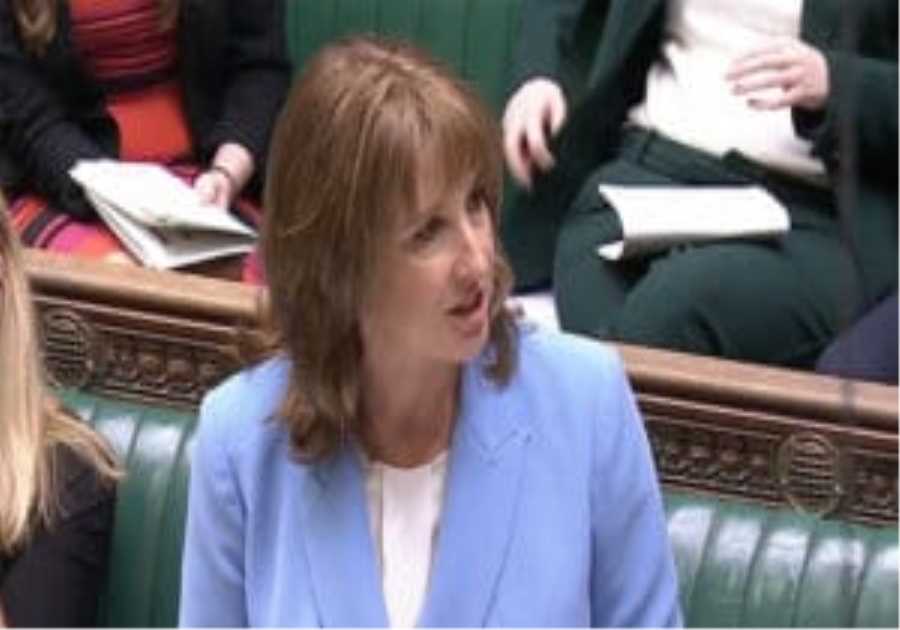The Federal Reserve has come under renewed fire from the Trump administration in recent weeks as the president and key housing officials battle with Chair Jerome Powell over the direction of interest rates.
On Tuesday, while speaking to members of the House Financial Services Committee, Powell was resolute that the central bank will continue its “wait-and-see” stance as it gauges the impact of Trump’s tariffs on the U.S. economy.
Mortgage rates remain stalled near 7% this week as uncertainty continues to swirl around the direction of jobs, inflation and gross domestic product. According to HousingWire’s Mortgage Rates Center, rates for 30-year conforming loans averaged 6.99% on Tuesday, down 1 basis point from a week ago. Rates for 30-year jumbo loans and Federal Housing Administration (FHA) mortgages were virtually unchanged too.
Persistent inflation?
Powell and the Fed have brought inflation down significantly in the past three years after it peaked at 9.1%. Last month’s Consumer Price Index (CPI) data showed annualized inflation of 2.4%, not far from the Fed’s self-prescribed goal of 2%.
But central bankers have been attempting to read the tea leaves after Trump’s global tariff policies were announced in April. While many of the tariffs have been on pause while the U.S. negotiates with trade partners, the Fed has said it is concerned about their potential long-term impacts. It wants more substantial evidence of a shifting economy before lowering (or raising) rates.
“The effects on inflation could be short lived — reflecting a one-time shift in the price level,” Powell said in prepared remarks before House lawmakers. “It is also possible that the inflationary effects could instead be more persistent.
“Avoiding that outcome will depend on the size of the tariff effects, on how long it takes for them to pass through fully into prices, and, ultimately, on keeping longer-term inflation expectations well anchored.”
Powell’s comments came just a day after Fed Vice Chair Michelle Bowman provided fuel to the fire by suggesting that policymakers could cut rates sooner rather than later.
“Should inflation pressures remain contained, I would support lowering the policy rate as soon as our next meeting in order to bring it closer to its neutral setting and to sustain a healthy labor market,” Bowman said Monday during a conference in the Czech Republic.
Last week, the Federal Reserve continued its pause on benchmark rates for a fourth straight meeting, leaving them at a range of 4.25% to 4.5% that’s regarded by many market observers as too restrictive.
President Trump has been highly critical of Powell, whom he appointed as Fed Chair in 2017 during his first term in the White House.
In a recent post on Truth Social, Trump called Powell a “numbskull” and pointed to data from other central banks showing that the U.S. has much higher benchmark rates than many countries — including Switzerland, Japan and Canada. The president has suggested that rates should be 250 basis points lower than their current level.
Bill Pulte, the director of the Federal Housing Finance Agency (FHFA), has also weighed in by calling for Powell’s resignation. In a social media post on X on Tuesday, Pulte accused Powell of politicizing the Fed and termed his policies “dangerous” for everyday Americans who are “just trying to pay their car loans, credit cards, & mortgages.”
Where’s the housing market headed?
In the short term, interest rates could also be impacted by the U.S.’s increasing involvement in the Middle East after it bombed several Iranian nuclear sites over the weekend.
HousingWire Lead Analyst Logan Mohtashami wrote Sunday that he doesn’t “expect much to happen on rates either way” as a result of the military actions. And his analysis of Freddie Mac data found that rates have largely remained in the range of 6% to 7% since the start of 2023. He does not expect a deviation from his 2025 forecast range of 5.75% to 7.25%.
“We need to closely monitor all new variables in the economy and markets, but unless there is a significant escalation in the Middle East, the focus on mortgage rates should center on the labor market and how the Federal Reserve interprets the labor data.”
Altos Research data released this week shows that the housing market remains on relatively stable footing despite higher rates. The supply of available inventory is up 31% year over year, and the number of new listings is close to “normal,” according to Mohtashami.
Sellers are not panicking as they did during the housing bubble of the late 2000s, when 250,000 to 400,000 homes were being listed each week. And buyers continue to emerge as purchase mortgage application demand continues its hot streak with a 20th straight week of annualized growth.
Home-price appreciation is also stable. The S&P CoreLogic Case Shiller Index for April, released Tuesday, shows national home-price gains of 2.7% year over year. Cotality chief economist Selma Hepp noted that prices were up 1.6% since the start of the year, a slower pace than the 2.7% growth seen during the first four months of 2024.
“Softness remains concentrated in the markets in Florida, Texas and Desert West, however even in the other markets that experienced a typical spring bump in prices, those gains lagged the typical jumps seen in the years prior to the pandemic,” Hepp said in a statement.
“On the other side, there are affordable markets, particularly in Indiana, New Jersey, Wisconsin, where spring gains have exceeded pre-pandemic trends and home buying demand has been solid, but are also the markets with less inventory improvements this spring.”
------------Read More
By: Neil Pierson
Title: Jerome Powell says the Fed isn’t budging on interest rates
Sourced From: www.housingwire.com/articles/jerome-powell-federal-reserve-mortgage-rates-trump-tariffs-home-prices/
Published Date: Tue, 24 Jun 2025 16:48:39 +0000
.png)





